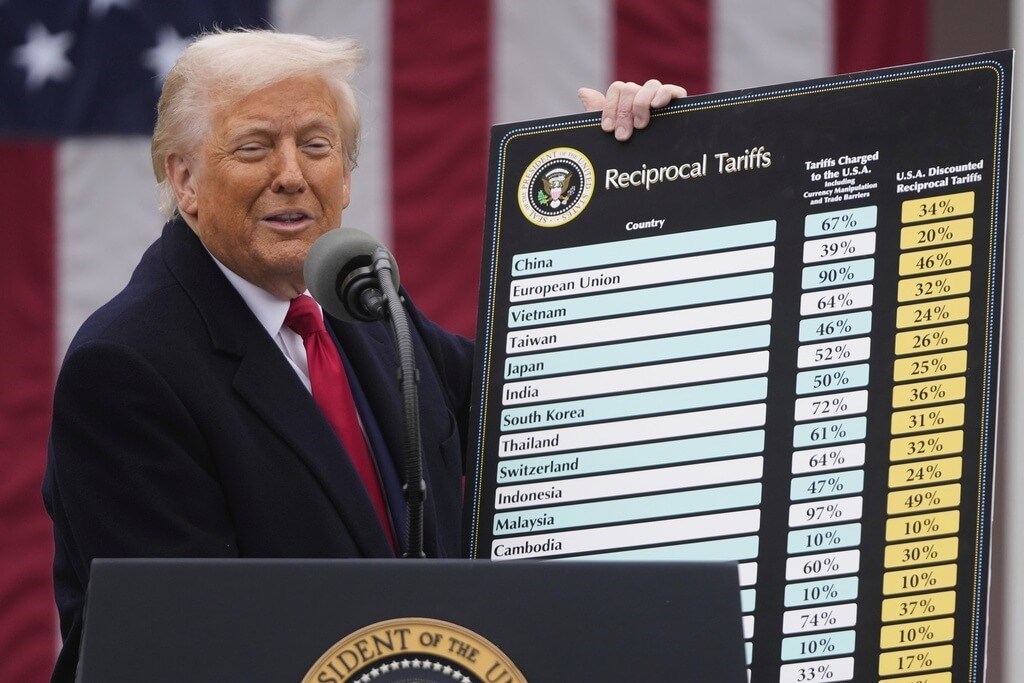Taipei, April 3 (CNA) Taiwan’s two biggest opposition parties on Thursday expressed dismay at U.S. President Donald Trump’s announcement that he would impose a tariff of 32 percent on Taiwanese goods and urged the government to negotiate with the U.S. on the issue.
Wang Hung-wei (王鴻薇), a lawmaker from the main opposition Kuomintang (KMT), told reporters that the high tariffs represent a “devastating shock” for Taiwan, particularly for small and medium-sized businesses.
Wang blamed the ruling Democratic Progressive Party government for being too “optimistic” when Taiwan Semiconductor Manufacturing Co. expanded the level of its investment in the U.S. and for failing to secure membership to the Comprehensive and Progressive Agreement for Trans-Pacific Partnership.
KMT lawmaker Ko Ju-chun (葛如鈞) accused the government of “doing nothing” in response to the looming tariffs and said Canada and Mexico had successfully avoided tariffs by proactively negotiating with the U.S.
In a news release on Thursday, the KMT said President Lai Ching-te (賴清德) had been “solely catering” to the United States and emphasized that the KMT’s policy is to be “pro-U.S. but not dependent on the U.S.”
“[Lai] has no strategic autonomy in foreign economic and trade negotiations,” the statement said.
Meanwhile, the Taiwan People’s Party (TPP), the second-largest opposition party in Taiwan, also expressed concern over Trump’s proposed tariff on Taiwanese goods.
In a news release issued on Thursday, the TPP pointed to Taiwan’s export-oriented economy, especially in traditional industries, which could be forced to establish production facilities in the U.S.
The TPP called on the government to launch negotiations with the U.S. on the issue and to implement strategies for economic resilience, including industry transformation and job stability.
Earlier on Tuesday, Taiwan’s government had described the Trump administration’s proposed 32 percent tariff on Taiwanese goods as “deeply unreasonable.”
Cabinet spokesperson Michelle Lee (李慧芝) said the government would “lodge a solemn representation” with the United States Trade Representatives and continue negotiating with the U.S. to “ensure the interests of our nation and industries.”
